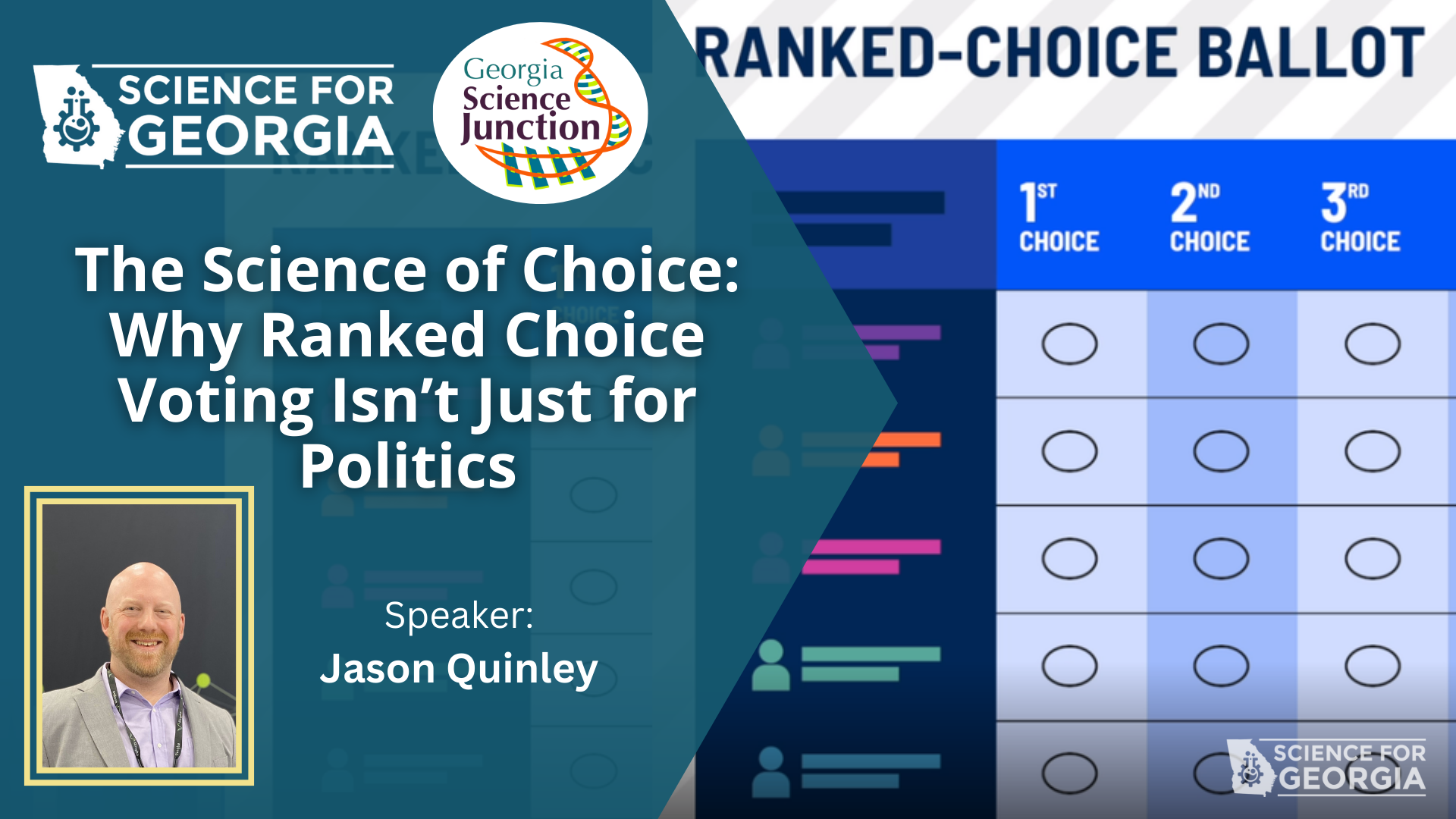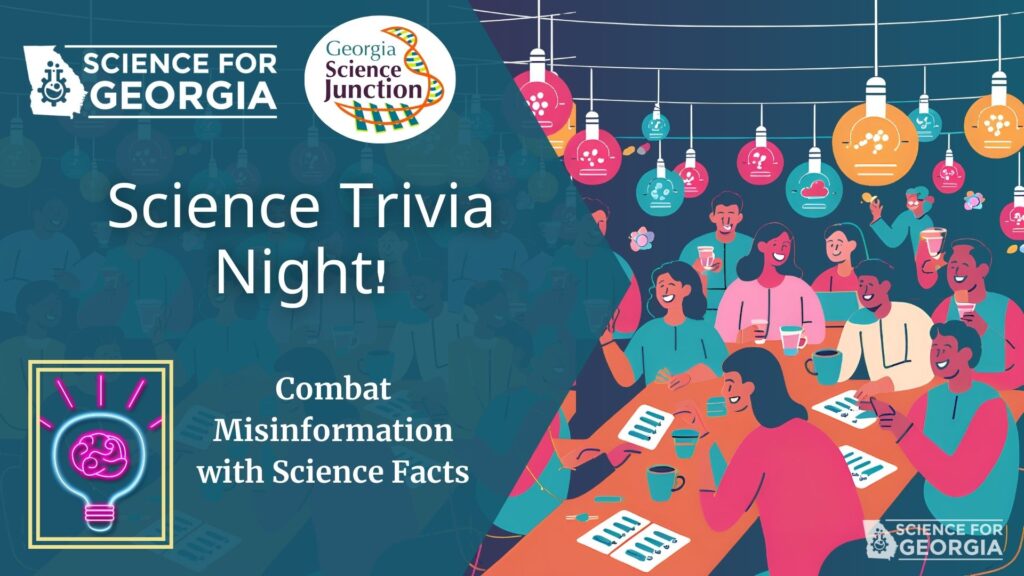
- This event has passed.
The Science of Choice: Why Ranked Choice Voting Isn’t Just for Politics
May 21 @ 7:00 pm - 9:00 pm
$5 – $10
The Science of Choice: Why Ranked Choice Voting Isn’t Just for Politics
Tuesday, May 21st 7pm-9pm
In-Person and Streaming
Location: Mutation Brewing, 5825 Roswell Rd NE, Sandy Springs, GA 30328, We will be in the Speakeasy at Mutation, Straight ahead from the main entrance in the back. Ask at the Bar if the door is closed.
Why is it so hard for third-party candidates to win modern elections? How does voting in political races differ from the way college teams are ranked or how the Oscars are awarded? And how can a business, city, or state choose among multiple candidates for a program without a costly and time-consuming runoff procedure? The answers to these questions can be found in understanding concepts from Ranked Choice Voting and Game Theory, a branch of mathematics devoted to interactive decisions.
If you’ve heard phrases like “win-win” and “zero-sum” or seen movies like “The Dark Knight” and “A Beautiful Mind”, you’ve already been exposed to ideas from game theory. In particular, we will look at alternative voting mechanisms, and how you can implement them with your organization, whether it’s something like choosing a location for the office holiday party, deciding on what brand of coffee to put in the break room, or how to select a board chairman from several candidates.
Those wanting a preview of some of the topics can check out the interactive web apps here on The Evolution of Trust and Building a Better Ballot or follow this link to Sci4ga’s Ranked Choice white paper.
ncase.me/trust/
ncase.me/ballot/
Featured Speaker: Jason Quinley
Jason Quinley is a Venture Capital Consultant and Data Scientist with a research background in applied mathematics and computational linguistics. He joins us by way of the Atlanta Society for Data Science & Business Intelligence, of which he is the president.
Jason has a further background as an educator and political consultant, where he created the first Game Theory course for high-schoolers nationwide. His speaking engagements include talks in over twenty cities and five countries on topics like integrating psychological realism with economic theory, modeling deception and cooperation, simulating historical language contact, and applying neuroeconomics to linguistics pragmatics, and prototyping apps with artificial intelligence.



